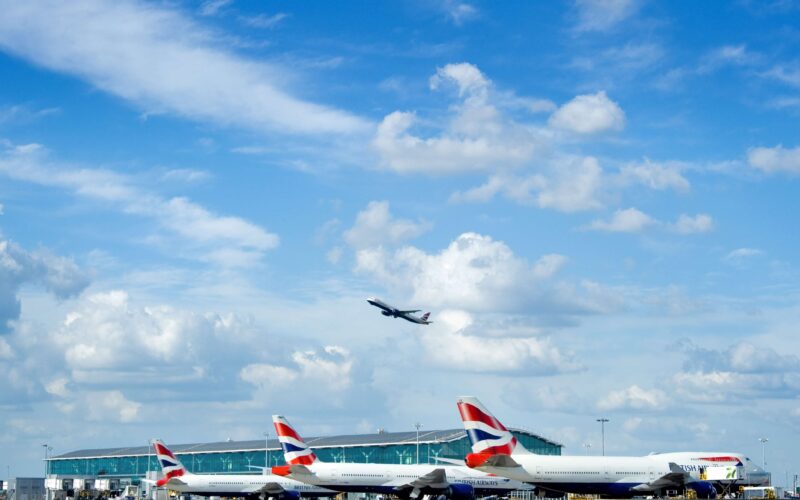Over 600,000 passengers canceled travel plans from London Heathrow (LHR) in December due to the Omicron variant of the COVID-19 virus, the airport operator has announced.
Britain’s largest airport also unveiled how the pandemic and ongoing travel restrictions, which have been more onerous in Britain than in Europe, impacted passenger numbers in 2021.
Between January and December 2021, 19.39 million passengers traveled through LHR, a drop of 12% on 2020 levels and representing less than one-quarter of the passenger numbers seen in 2019.
“There are currently travel restrictions, such as testing, on all Heathrow routes – the aviation industry will only fully recover when these are all lifted and there is no risk that they will be reimposed at short notice, a situation which is likely to be years away,” Heathrow chief executive John Holland-Kaye said in a press release from January 11, 2022.
LHR said there was “significant doubt” over how fast the industry would recover from the COVID-19 pandemic. The airport urged the UK government to remove all testing requirements for fully vaccinated passengers and to set out guidelines for dealing with any future variants, such as Omicron.
The emergence of the Omicron variant in the final weeks of 2021 led to many countries imposing travel restrictions at short notice, disrupting the travel plans of thousands and dealing a fresh blow to the aviation industry.
In the statement, LHR cited data from industry association IATA suggesting passenger numbers will not reach pre-pandemic levels until 2025, as long as travel restrictions are removed and passengers can be certain such restrictions won’t be imposed at short notice.
“We are urging the UK government to remove all testing now for fully vaccinated passengers and to adopt a playbook for any future Variants of Concern that is more predictable, limits additional measures only to passengers from high-risk destinations and allows quarantine at home instead of in a hotel,” the airport commented.
According to Eurocontrol data, LHR was Europe’s fourth-busiest airport in 2019 in terms of aircraft movements. During the pandemic it has lost 59% of its traffic, meaning it has dropped to Europe’s sixth busiest airport in terms of flight movements in 2021.
For LHR in 2021, the biggest drop in passengers was for the Asia-Pacific market, with passengers down 40% compared to 2020. North American passengers were down 14%. However, UK domestic passenger numbers rose 21% compared with 2020.
As with its airline customers, cargo was a bright spot for LHR. It said that 1.4 million metric tons of cargo passed through the airport in 2021, a 23% rise on 2020 levels.
The airport added that the situation with changing travel restrictions also created uncertainty for airport charges for the next five years.
The UK Civil Aviation Authority (CAA) is due to take a decision on what LHR can charge passengers over the next five years by summer 2022. So far, the CAA has approved an interim increase for charges at London Heathrow (LHR) to £30.19 ($41.14), a rise of 37% from 2020 prices. Heathrow had asked for the price cap to be increased to between £32 and £43 ($43.61-$58.60), up from £22 ($29.98) per passenger for 2020.
Holland-Kaye said the CAA “must focus on an outcome that improves service, incentivizes growth and maintains affordable private financing.”

